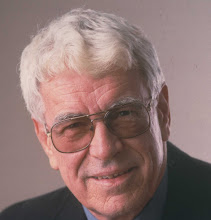Sunday, November 25, 2007
A Farm in Eleuthera
Tall, lean Calder MacInnis is bent double, sitting on a wheel well in the back of a Mitsubishi Pajero 4x4 which is jouncing along an overgrown bush track on the Bahamian island of Eleuthera. I sit on a sack of fertilizer, facing Calder, bouncing up and down, hitting my head, jarring my teeth. The Mitsubishi’s windows are closed to prevent vines and branches from slapping us in the face. It is stifling inside the vehicle, and both of us are streaming with sweat.
Calder and his brother run a surveying business in West Bay, Cape Breton. Among his friends is John Pratt — “Johnny Grape” — who owns the vineyard in nearby Marble Mountain. John sits in the passenger seat. He owns a rental property in Harbour Island, near Eleuthera. Calder and I, and our wives, are guests of the Pratts. We are in the Bahamas to have fun.
“Uff!” grunts Calder, as the Japanese jeeplet drops into a particularly deep pothole in the limestone bedrock.
“When I discovered this road — ” says Austin Mullin, the driver, a young Irishman from County Donegal.
“Road? What road?” I inquire innocently. And everyone laughs.
We are actually are having fun. We are visiting Austin’s farm.
Austin has taught school in Dunmore Town, on Harbour Island, for a decade. His wife Gail, also a teacher, is a native of Harbour Island. They have three gorgeous children. Austin cares passionately about education, is devoted to his students and seems to be a much-loved teacher. When we went out on the streets with him one evening to follow a noisy band practicing for the Christmas festival called Junkanoo, local kids greeted him with transparent affection, joking with him, teasing him, holding his hand.
Because Gail Mullin was born and raised on Harbour Island, she is entitled to a share of the “commonage” on Eleuthera — an area which Harbour Island people own in common. Individuals can use it, but cannot sell it. They can build houses there, for instance, and bequeath them to their children.
Or they can establish farms — and that is what Austin is doing. Most days he works on his farm after school. The farm includes a gleaming white beach beside the turquoise sea. So Austin normally travels the easy way — by motorboat, not by Mitsubishi. But today he needs the 4x4.
Farming in Eleuthera is not like farming in Manitoba or the Annapolis Valley. It’s more like farming in Peggy’s Cove, or on the Funk Islands. There is no soil. You can’t grow carrots, corn or lettuce. Sea grape thrives there, along with palmetto, Australian pine and other tough, unusable plants. These invasive plants can be cleared off, but they quickly spring back.
To keep them down, Austin maintains a flock of sheep and goats, which will eat almost anything. The animals, however, are easy prey for feral “potcake” dogs — and now for raccoons, which some lunatic recently introduced to Eleuthera. To protect the farm animals, Austin relies on high chain-link fences set in concrete.
To make concrete, Austin must bring large quantities of washed sand over his alleged road. He carries the sand in a rough-and-ready box trailer behind his Pajero. The sand, however, is so heavy that it recently broke the trailer’s tongue.
And that’s why we all came to Eleuthera — to help Austin unload the sand, jury-rig the tongue and tow the trailer to a welding shop for repairs. We bagged the sand, sandwiched the tongue between two-inch planks, and delivered the trailer. Now Austin is taking us to the farm, which is a long way off the main road.
The farm looks more like a hippie’s homestead than a regular farm. There’s a dug well in a hollow, a pump, and a big plastic tank up on a hill which provides water for the animals. The only building is a tool shed. The ground is hilly and rough, composed mainly of lumpy white rock.
Here and there, small depressions contain little pockets of soil. In those depressions, Austin has planted fruit trees, each one carefully fenced with plywood, wire and steel rod. As John Pratt remarks, Austin is “farming in the pot-holes.”
The farm has one great advantage: a warm, temperate climate, ideal for bananas, mangoes and citrus. But these, too, require a lot of hard work. Sour orange trees root well here, for instance, but nobody wants sour oranges. So Austin cuts off the branches and grafts other citrus species — lemons, limes, sweet oranges, grapefruit — onto the sour orange rootstock. Eventually, only the trunk of the tree will be sour orange.
And eventually the farm will produce cash crops. Eventually, Austin and Gail will live here. Eventually, their children can also build houses nearby.
“It’s a lot of work,” says Austin. “But when I ask if it’s worthwhile, I just look at my family. They make it all worthwhile.”
— 30 —
Subscribe to:
Post Comments (Atom)

1 comment:
Enjoyed your story!
PJ
My Eleuthera blog.
Post a Comment